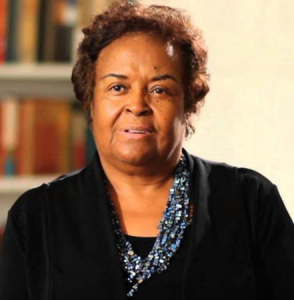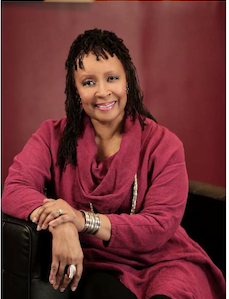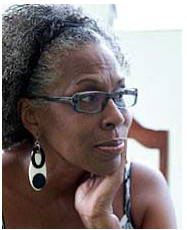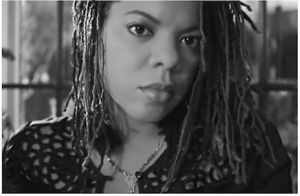
UPDATED: Due to the water issues in Jackson, the Margaret Walker Center at Jackson State University has rescheduled its 50th annual Dr. Martin Luther King, Jr., Birthday Convocation and its 23rd annual For My People Awards. MLK Convocation will now be at 10 a.m. on Tuesday, January 23, 2018, in the Rose E. McCoy Auditorium and the For My People Awards luncheon will immediately follow in the JSU Student Center Ballroom on campus. Dr. Joyce A. Ladner will be the keynote speaker.
The four honorees recognized for their commitment to the public preservation of African-American history and culture include: Dr. Joyce Ladner, 2018 MLK Convocation keynote speaker; Dr. Wilma Mosley Clopton, founder of NMHS Unlimited Film Productions; Dr. Maryemma Graham, distinguished professor Department of English, University of Kansas; and Mrs. Airea D. Matthews, recipient of the 2016 Yale Younger Poets Prize.
Ladner will also keynote the 50th Dr. Martin Luther King Jr., Birthday Convocation at 10 a.m. also on Tuesday, Jan. 23, in the Rose E. McCoy Auditorium. The convocation is free and open to the public.
A civil rights activist and scholar, Ladner’s career has been shaped by her first-hand involvement with the civil rights movement in Mississippi. The Hattiesburg native, began her fight for social justice as a teenager when she helped organize an NAACP Youth Chapter in her hometown.
In 1961, she was expelled from then Jackson State College for leading a civil rights protest and transferred to Tougaloo College. In 1963, she was jailed for a week for attempting to integrate the all-white Galloway Methodist Church in Jackson. Ladner was a friend and worked with slain civil rights leader Medgar Evers, as well as civil rights pioneers Fannie Lou Hamer and Ella Baker.
As a field secretary for the Student Nonviolent Coordinating Committee, Ladner was on the front lines of many major movement protests, including Greenwood, Birmingham, Albany, and Selma. As a staff member who organized the March on Washington in 1963, she worked alongside Bayard Rustin and other civil rights leaders and was on the stage when Dr. Martin Luther King Jr., gave his “I Have A Dream” speech.
An eminent sociologist, Ladner earned a Ph.D. from Washington University in St. Louis and had studied the intersectionality of race, gender and class. President Bill Clinton appointed her to the District of Columbia Financial Control Board, and she has been a senior fellow at the Brookings Institution. Her book, “Tomorrow’s Tomorrow: The Black Woman,” was the first book published in African-American Women’s Studies and is now an American classic. She has published six additional books and numerous articles.
Ladner went on to become a professor of sociology, provost and interim president at Howard University in Washington, D.C.
Today, she is completing her memoir titled “Standing in the Gap: A Memoir of Resistance, Rebirth and Redemption,” which captures the spirit of her generation of young civil rights workers who challenged segregation and discrimination in the South and changed the face of America.[hr]

[dropcap]C[/dropcap]lopton is a Ph.D. and a Phi Delta Kappa, Pi Lambda Theta Honor Society graduate of St. Louis University. She is a writer, producer, director, author, world traveler, wife, mother, grandmother, a Mississippi native and only daughter of the late Drs. Charles C. and Jessie Bryant Mosley.
As the creator of NMHS Unlimited Film Productions, Clopton is dedicated to highlighting the continued significant contributions of African Americans to the state of Mississippi.
NMHS Unlimited began in the 1940s as the Negro in Mississippi Historical Society. It was founded by Clopton’s mother, Dr. Jessie Bryant Mosley, also the founder of the Smith Robertson Museum and Cultural Center located in Jackson. Today, NMHS Unlimited is a 501(c)(3) Jackson-based film company.
While mostly self-taught, Clopton has attended the University of Mississippi’s 10th Annual Filmmaking Workshop and the Barefoot Filmmakers Workshop. She uses the medium of short documentary films to tell untold Mississippi stories. Her body of work to date includes twelve short films, four books, a children’s coloring book, and one play about people of African descent in Mississippi.
As an adjunct professor at Jackson State University’s W.E.B. Du Bois Honors College, Clopton taught “American Film and the American Dream.” She designed the course to include the critical analysis of film and the overarching subliminal projections, which influence our daily lives and perceptions.
Clopton has received the 2011 Mississippi Humanities Educator Award, the prestigious 2014 Mississippi Arts Commission Media Fellowship Award, and the 2013 and 2015 Mississippi Film and Video Alliance’s “Emerging Filmmaker Award.” She has also been named one of Mississippi’s Top 50 Business Women in 2012, and one of Mississippi’s Top 10 Business Women in 2013.
In addition to mentoring young entrepreneurs and filmmakers, in 2016, Clopton received the “Award of Merit” from the Mississippi Historical Society for exemplary documentary film projects highlighting the significant contributions of African Americans in the state of Mississippi.
In 2017, the members of Women for Progress of Mississippi, Inc., recognized her and her films during Women’s History Month, for supporting their mission of a world in which women are fully empowered and all people live with peace, justice, freedom, and dignity.
Clopton is the wife of U.S. Air Force Lt. Col. (ret.) William F. Clopton, Sr. They have two sons and three grandchildren.[hr]

[dropcap]G[/dropcap]raham is a long-time member of the Margaret Walker Center Advisory Board and National Council. In 1983, Graham founded the Project on the History of Black Writing, which has been at the University of Kansas since 1999.
She has published eleven published books, including The Cambridge History of African American Literature with Jerry W. Ward, Jr. (2011), The Cambridge Companion to the African American Novel (2004), Fields Watered with Blood: Critical Essays on Margaret Walker (2002), Teaching African American
Literature: Theory and Practice (1998), The Complete Poems of Frances E.W. Harper (1988), and Toni Morrison: Au delà du visible ordinaire/Beyond the Visible and Ordinary (2014) as well as more than 100 essays, book chapters, and creative works.
The foremost Margaret Walker scholar, Graham is working on a full-length biography, The House Where My Soul Lives: The Life of Margaret Walker (Oxford University Press), which brings together her recovery work—exploring the life of the “most important person that nobody knows” according to Nikki Giovanni—and her theories on invention and innovation as African American literary practices. For Graham, Margaret Walker illustrates the kind of creative tension that occurs in so much of African American literature, the demonstration of mastery in the use of specific narrative, lyric and dramatic modes and the need to push beyond these boundaries to address larger intellectual questions, specific conditions, as well as traditions.
Graham’s public humanities initiatives and international projects since her arrival at the University of Kansas include The Langston Hughes National Poetry Project, 2002-2005; the Language Matters teaching initiative for the Toni Morrison Society 2003-2010; the Haiti Research Initiative 2011; and Don’t Deny My Voice, a summer institute on African-American poetry held in 2013.
Graham has been a John Hope Franklin Fellow at the National Humanities Center, an American Council of Learned Societies Fellow, and a Ford and Mellon Fellow, and she has received more than fifteen grants from the National Endowment for the Humanities.
In addition to African-American literature and culture, Graham teaches a course in genre studies (the novel and autobiography) and Inter American Studies (transnationalism, the Global South), and she is an active proponent of the digital humanities.
In December 2017, Graham was presented with her For My People Award for her indelible contributions to African-American history and culture at the 75th-anniversary event on the campus of Jackson State University in honor of the publication of Margaret Walker’s book of poetry “For My People.”[hr]

[dropcap]M[/dropcap]atthews, a 2012 Cave Canem fellow, is an assistant professor of creative writing at Bryn Mawr College in Pennsylvania.
Her teaching, her role in the direction in the MFA program at the University of Michigan, her leadership in the Detroit arts community, her personal philanthropy in support of artists in the U.S. and abroad all demonstrate her curatorial talents, as well as her interest in community engagement.
After years of work in a variety of spaces, Matthews has received awards from the Kresge Foundation and the Rona Jaffe Foundation. Her first book, Simulacra, was selected for the Yale Younger Poets Prize, making her the first black woman to receive this award since Margaret Walker in 1942.
“Simulacra” (Yale University Press, 2017) is a lyrically and graphically striking collection that explores convergences of public and personal myth, allegorical corruption, addiction, and yearning hypotheses. Matthews uses philosophical and technical ambiguity to represent her speaker’s longing to know the self and to be known by others.
Matthews works to bridge her aesthetic, conceptual, and personal concerns. She makes work that invites response and possibility from her viewers.
Many of her questions involve how she can improve, how she can strengthen her acts of communication, and how she can make work that challenges her assumptions about art making. In this way, Matthews combines academic rigor with artistic ability and encourages her colleagues to approach their own work with a similar sense of freedom.
Her work has appeared in “Best American Poets 2015,” “American Poets,” “Four Way Review,” “The Indiana Review,” “Michigan Quarterly Review,” and elsewhere.
In December 2017, Matthews was also presented with her For My People Award for her indelible contributions to African-American history and culture at the 75th-anniversary event on the campus of Jackson State University in honor of the publication of Margaret Walker’s book of poetry For My People.






